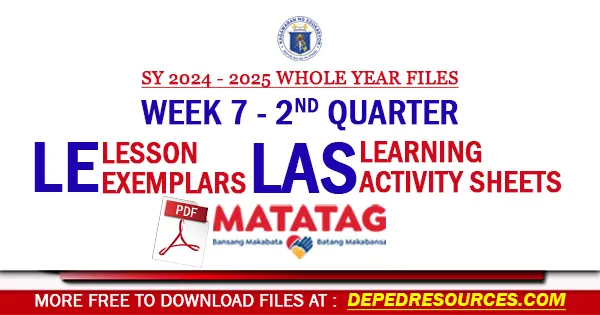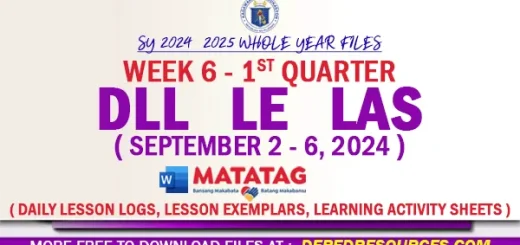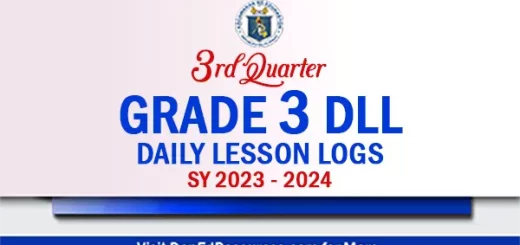Week 7 2nd Quarter Lesson Exemplars (LE) Learning Activity Sheets (LAS) SY 2024 – 2025
What are Lesson Exemplars (LE)?
Lesson exemplars provide teachers with clear, structured guides that make lesson planning easier and more effective. By outlining key parts of a lesson—such as objectives, materials, activities, assessments and reflections, lesson exemplars create a solid framework for teaching. This approach benefits newer teachers especially. They offer consistency and alignment with educational standards.
Each lesson exemplar focuses on essential elements: objectives set specific goals for students, materials ensure teachers are prepared and activities outline interactive steps that engage students. Assessments help teachers track learning progress while differentiation strategies address diverse learning needs making lessons accessible for all. Reflection sections encourage teachers to evaluate what worked and what needs improvement, fostering continuous growth.
Lesson exemplars are particularly helpful in subjects like Science where breaking down complex concepts into manageable steps can boost student understanding and engagement. Additionally, lesson exemplars encourage collaboration among teachers enabling them to share strategies that bridge learning gaps and cater to diverse student needs. When culturally relevant, lesson exemplars make classrooms more inclusive promoting critical thinking and problem-solving skills. Lesson exemplars empower teachers to deliver well-structured, adaptable and engaging lessons that enhance student learning.
What are Learning Activity Sheets (LAS)?
Learning Activity Sheets (LAS) play a key role in education, boosting classroom engagement and reinforcing lessons. These worksheets, filled with exercises and assessments let students practice on their own while helping teachers assess their understanding. Over the years, LAS have evolved to become adaptable resources for different subjects, grade levels and both in-person and remote learning setups.
Each LAS typically includes several essential parts. Introductory Concepts provide background information, preparing students for the lesson’s key points. Activities offer varied tasks, such as writing, creative projects, or hands-on exercises designed to engage different senses for a deeper learning experience. Scoring rubrics guide students on how their work will be evaluated and answer keys allow for self-assessment. Finally, References give students options for further study.
In subjects like math and science, LAS make lessons more interactive promoting critical skills such as problem-solving and creative thinking. Based on constructivist teaching methods, LAS encourage student-centered learning, letting students actively interact with content and build knowledge through their experiences.
















